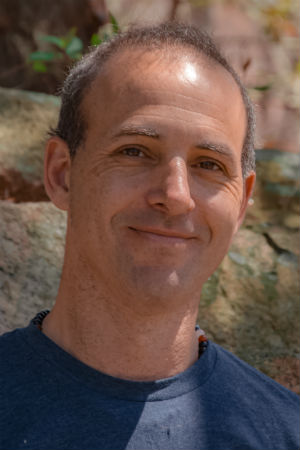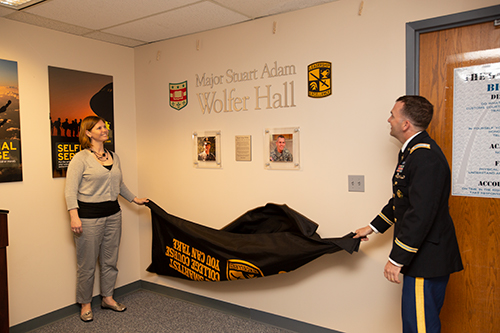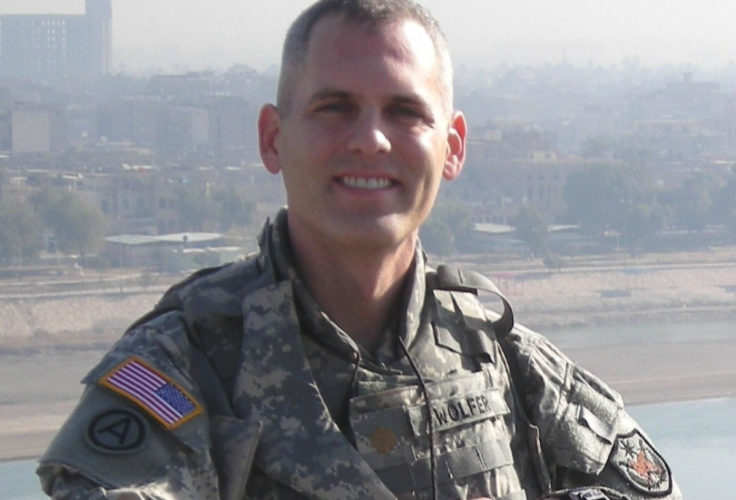
Julian Wise, LA ’93
Julian Wise, LA ’93, wrote this tribute to his former WashU roommate Stuart Adam Wolfer, BSBA ’93, an Army reservist killed during a mortar attack in Iraq in 2008.
This spring, I attended the 25th reunion for the Washington University Class of 1993. It was a joyful, fast-paced weekend, filled with alumni parties, volunteer events, and conversation with old friends. It was good to stroll the Brookings campus again.
Yet amid the merriment, I couldn’t help noting an absence in our ranks. The week marked the 10th year since the death of my former roommate, Major Stuart Adam Wolfer, KIA in Iraq in 2008.
Stuart and I lived together from 1990 to 1992, first in a suite at Rutledge Hall and later in an off-campus apartment in the Central West End. He remains an unforgettable figure from my Washington University years.
Stuart and I had little in common. I was a quiet liberal arts student from Cape Cod struggling to choose a major. Stuart bounded into WashU from Coral Springs, Florida, rock-confident in his plans for the future—business school, ROTC; an MBA or law degree after graduation. I marveled at his certainty, not without a trace of jealousy. Could it really be that easy to choose a career path without putting yourself through torturous mental gyrations?
Stuart was physical. He stood tall, worked out regularly, and carried himself with commanding presence. He didn’t just enter a room—he strode in. By junior year, he was maintaining a full course load, working part-time at Eddie Bauer’s at the Galleria Mall, and decamping frequently to Fort Leonard Wood in the Ozarks for ROTC training. I couldn’t figure out where he got the energy.

Lee Wolfer of Eagle, Idaho, the widow of Stuart Adam Wolfer,
and ROTC Lt. Col. James Craig, unveil a memorial during the Stuart Wolfer Memorial
Event at the North Campus of Washington University
on April 18, 2018. Photo by Jerry Naunheim Jr.
Stuart and I weren’t best friends, but we were always cordial with each other. I kept quiet in the apartment, did the dishes and paid the rent on time. With his hectic schedule, that was all he was looking for in a roommate. We would never achieve that sentimental, bosom-buddy rapport associated with college friendships. I was a wallflower, while Stuart’s energy was turned up to 11. By senior year we’d drifted on to other living arrangements. I never saw Stuart after graduation; we exchanged a few brief emails before falling out of touch.
Walking among the current generation of WashU students, it struck me that the people least like us are often the ones we learn the most from. There is comfort and ease in bonding with similar people, yet the greatest growth comes from encountering those whose temperaments, outlooks, and natures contrast with our own.
With the passage of years, I’ve come to understand that, while he was no saint—he could be stubborn as a bull when the spirit moved him—Stuart possessed qualities I have come to value, admire, and even try to emulate. He was loyal to a fault, devoted, hard-working, and relentlessly value-driven.
I suspect his energy came from an awareness that his time at Washington University was brief and he was determined to wrest every drop of experience from it.
Today, I think of Stuart’s three daughters, who were young when he died. I want them to know that their father lived with a spark that’s memorable a quarter century later to those who knew him. I’m certain he loved them with a power beyond words. To them, I say: Your father was a remarkable man and you should be proud of him. Washington University certainly is.
Julian Wise is the owner of Island Images Gallery and Genevieve Press, a small non-fiction publishing company. He lives on Martha’s Vineyard, Massachusetts. He can be reached at islandimagesgallery.com and julwise@gmail.com.








